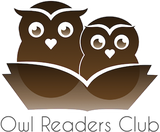
Put Down That Book and Play!
All work and no play make Jack a dull boy. We have been talking about reading for quite a bit, so this time I’m going to lay off the serious stuff and talk about the importance of play for a change. So the next time you see your kid reading a book, tell him to put it away and go out and play!
Everyone knows reading is important for a child’s literacy development and play usually gets a bad rep because it doesn’t appear to have any relevance to a child’s academic pursuit, but studies show that play impacts your child’s development in ways that books can’t. It allows children to use their creativity while developing their imagination, motor skills, cognitive, and emotional strength. It is through play that children engage and interact with the world around them, and better yet, if the play session is child-driven, children will develop decision-making skills and confidence at their own pace.
As if life isn’t complicated enough, experts feel a strong desire to classify play into many varied categories and theories. Sociologist Mildred Parten describes play into six different categories and they will differ with age, mood and social setting. This organization is still considered one of the best descriptions of how play develops in children. For me, I like to categorize play into two broad classifications – free play and structured play.
Free play, as its name implies, is playtime without any rules; and in most cases, usually very low cost or free. The play is fueled by imagination and whatever props the child can get his hands on at that time. Sometimes I introduce a story during playtime just to give the child more materials to work with. I also have a box of knick-knacks at home that contains anything from used coffee capsules to empty toilet rolls. You would be surprised at the number of uses a pipe cleaner can have in the hands of a child. If you’re up to it, you can build prop castles or play dress-ups and join your child in his made-up world. Allow the child to take the lead and assist by asking questions to spur his imagination.
Structured play should be familiar to most parents. It’s more organized and happens at a fixed time or in a set space, and is often led by an adult. Swimming lessons, storytelling sessions, dance classes and even board-game nights are examples of structured play. I remembered a friendly debate that took place over dinner amongst a group of parents. One camp felt that subjecting their 6 year olds to too many enrichment lessons affect children’s natural development. The other camp felt that exposing their children to as many different activities as possible would help the children gain experience and discover their interest earlier in life. I decided to take the survey to the children instead.
“So how did you find the archery class you attended last week?” I asked the kids. “It was very fun,” came the reply, which led me to think that what adults find to be a chore, the kids found to be playtime.
What do you think? Join in the debate and send us your comments at writetous@owlreaders.club.
Written by Eugene Tay (founder of Monsters Under the Bed): "When I was a young boy, I wanted to be an astronaut. When that didn't take off, I decided that I'm going to be like Indiana and explore the world as an archaeologist. Eventually, I figured out how I can do both. That's when I became a writer."
If you are interested in child directed open ended toys, do check out our partner Little Llama. For a limited time only, any reader reading this post can quote OWLxLLAMA20 to receive a 20% discount off any order with Little Llama. Promotion expires on 15 December 2016

